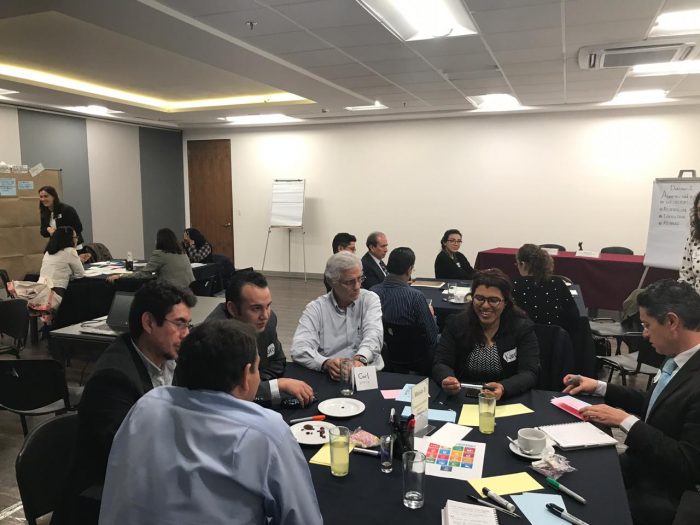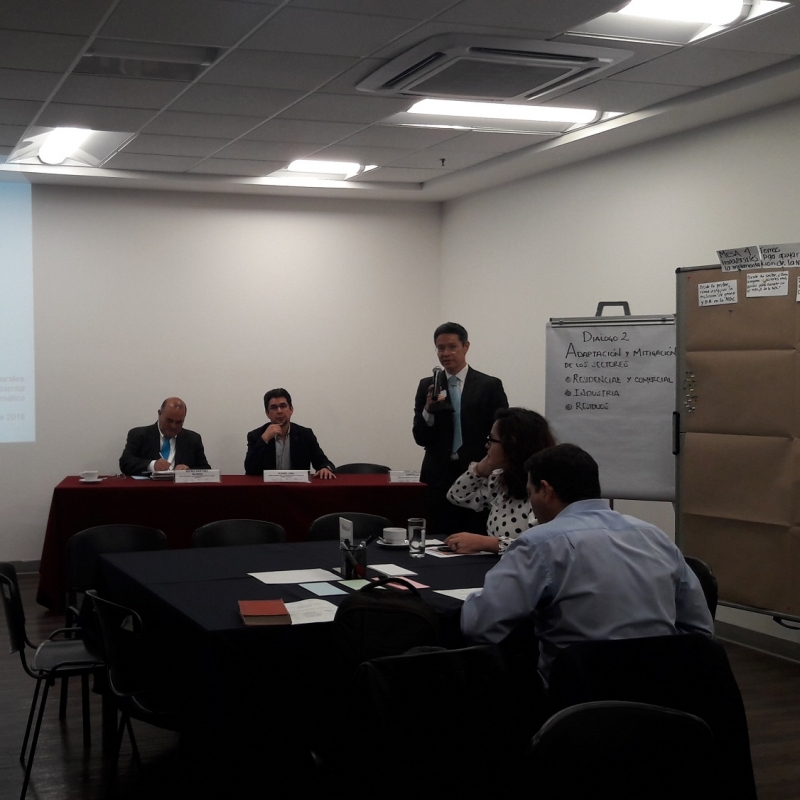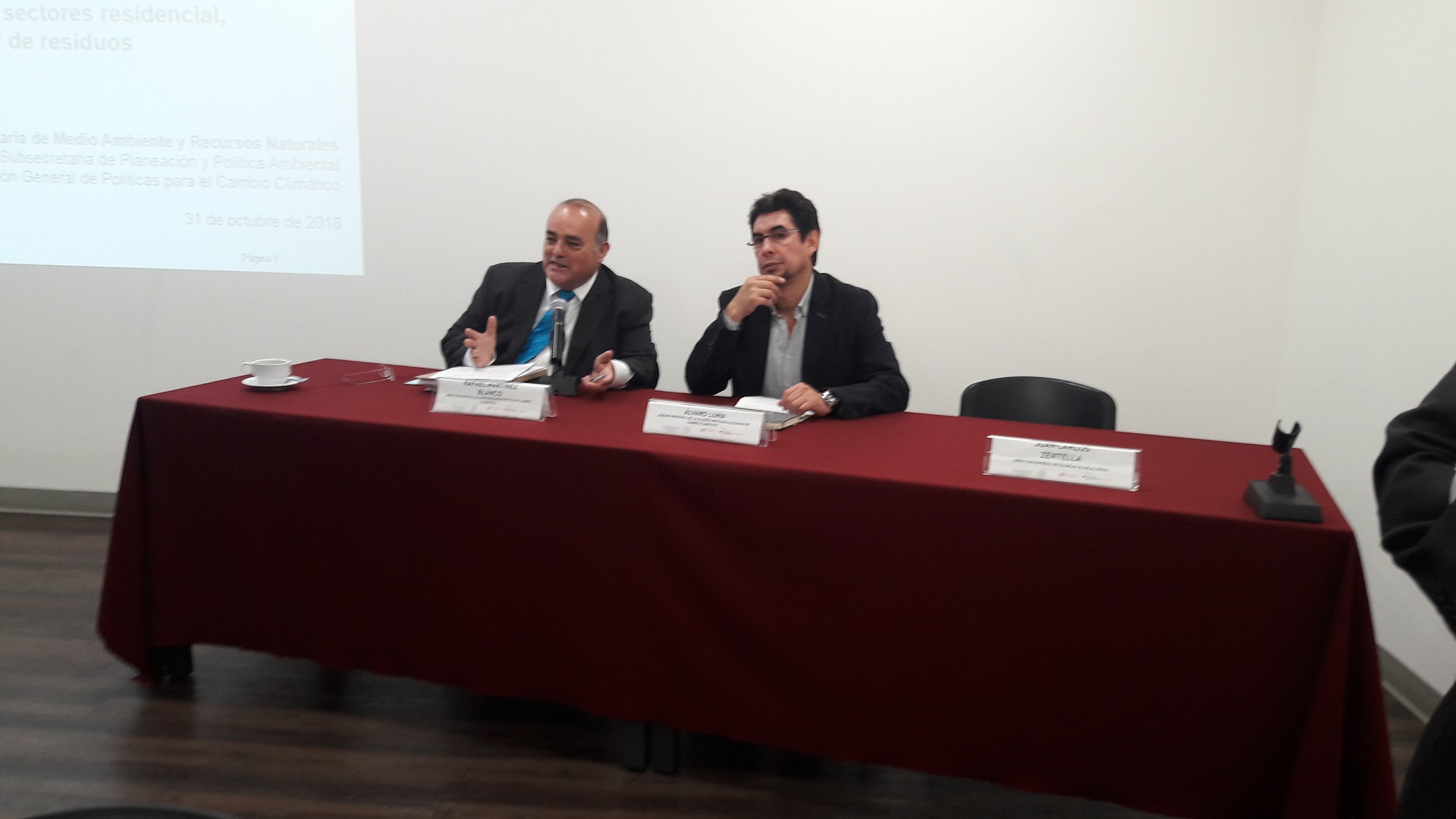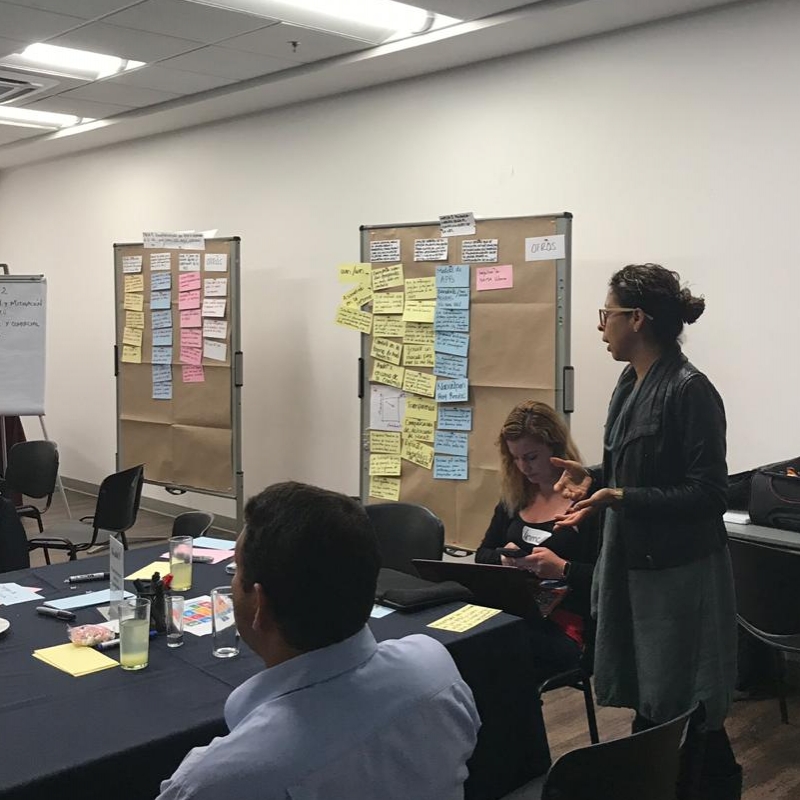Second Dialogue for the Implementation of the NDC
The Mexican-German Climate Change Alliance of the Deutsche Gesellschaft für Internationale Zusammenarbeit (GIZ) GmbH helped the Ministry of the Environment and Natural Resources (SEMARNAT) develop four dialogues aimed at defining the content and narrative of Mexico’s Nationally Determined Contribution (NDC) Implementation Plan. In this second dialogue, experts and key actors from the residential, commercial, industrial and waste management sectors were invited.
On October 31, 2018, a second dialogue was held at the SEMARNAT offices in support of the preparation of the NDC Implementation Plan for Mexico. During the event, proposals were presented for the content, structure and narrative of the plan, as a basis for opening a space for dialogue between experts on specific topics.
Participants discussed the legal changes that should be promoted to help ensure these sectors not only mitigate greenhouse gases (GHGs), but also increase their ambition to meet the goals set out in the NDC. They highlighted the need to comply with Official Mexican Standards (NOMs) on climate so that the use of devices helps enhance implementation efficiency.
The achievements of different financing models in the residential and commercial sector were recognized—for example, the EcoCasa Program, which generates synergies between National Appropriate Mitigation Actions (NAMAs) and the Kreditanstalt für Wiederaufbau (KfW). Similarly, it was stressed that NAMAs for housing and urban issues should continue and be promoted. Pending issues were also identified, such as the need for municipalities to play a more active role in mitigation efforts by adopting Mexico’s building energy efficiency codes and applying and updating their construction regulations.

The dialogue identified an absence of effective economic and fiscal incentives that allow the industry to adopt energy management systems. These incentives include Ecocredits, the facilitation of procedures, an emissions trading system and clear, long-term rules that give legal and financial assurance to the investments of industry self-supply systems. They also discussed how the modifications made to productive systems for the use of natural gas have not guaranteed sufficient supply and competitive prices of natural gas with respect to diesel.
The need to strengthen the legal framework at the national and subnational levels was raised. This will help reduce the generation of solid waste, and ensure adequate management throughout, from the classification stage to recycling, final disposal, recovery, and the capture or burning of methane in sanitary landfills; in summary, it will help achieve a life cycle and circular economy approach in solid waste management. In fact, one proposal discussed creating the conditions to expand the use of biogas for different industrial sectors.
Another of the topics highlighted during the dialogue was interinstitutional and intergovernmental coordination as strategic components in the preparation of the NDC Implementation Plan; as well as the involvement of the private sector.



